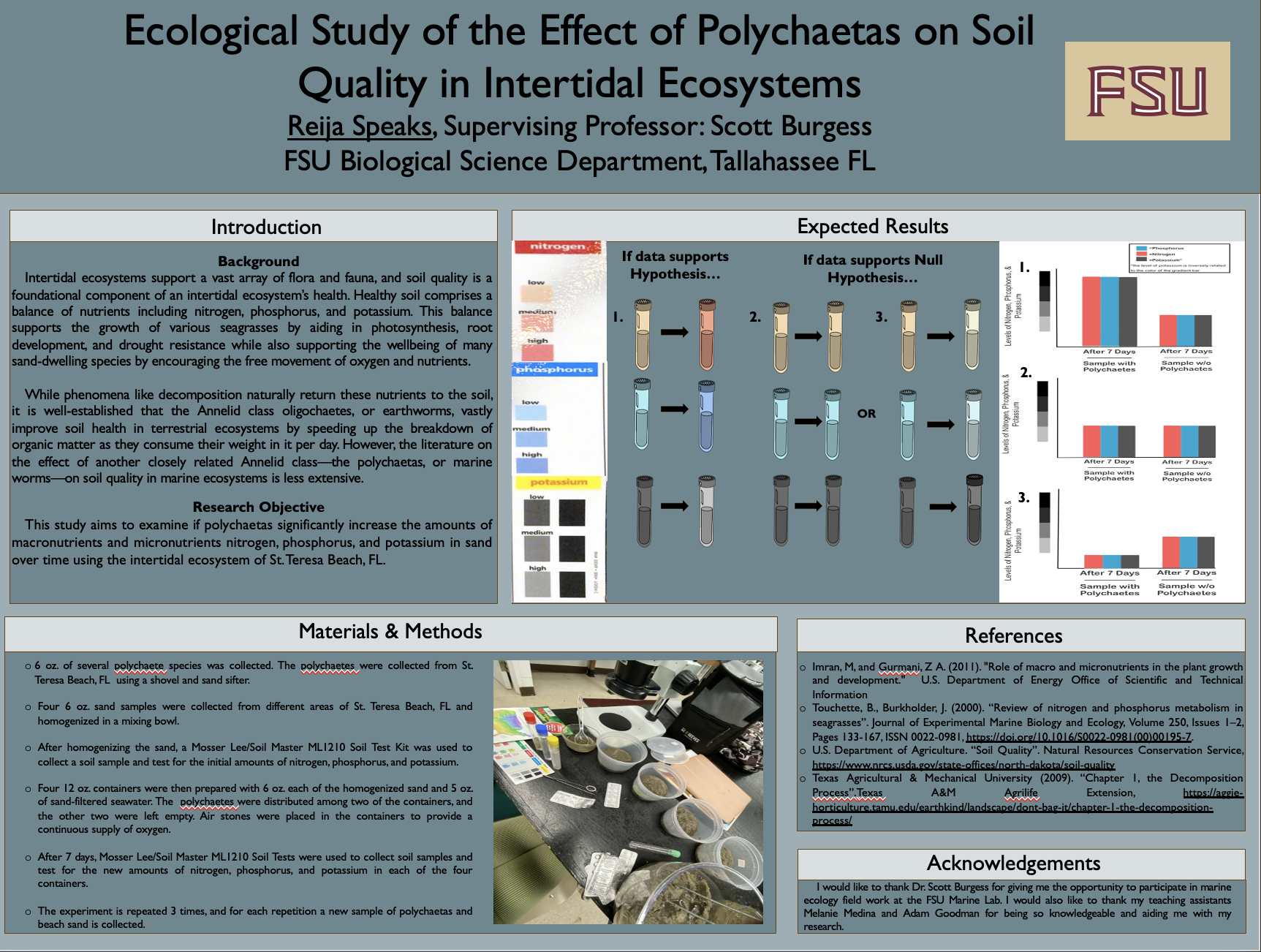Research Symposium
25th annual Undergraduate Research Symposium, April 1, 2025
Reija Speaks Poster Session 2: 10:45 am - 11:45 am/ Poster #233

BIO
My name is Reija Speaks, and I’m a senior at Florida State University. I was born in Fayetteville, NC and moved to Tallahassee, FL to pursue my B.S. in Biological Science. I am beyond grateful to my research mentor for giving me the opportunity to work in marine ecology fieldwork firsthand at the FSU Marine Lab.
Ecological Study of the Effect of Polychaetas on Soil Quality in Intertidal Ecosystems
Authors: Reija Speaks, Scott BurgessStudent Major: Biological Science
Mentor: Scott Burgess
Mentor's Department: Biological Science Mentor's College: College of Arts & Sciences Co-Presenters:
Abstract
Intertidal ecosystems support a vast array of flora and fauna, and soil quality is a foundational component of an intertidal ecosystem’s health. Healthy soil comprises a balance of nutrients including nitrogen, phosphorus, and potassium. This balance supports the growth of various seagrasses by aiding in photosynthesis, root development, and drought resistance while also supporting the wellbeing of many sand-dwelling species by encouraging the free movement of oxygen and nutrients.
While phenomena like decomposition naturally return these nutrients to the soil, it is well-established that the Annelid class oligochaetes, or earthworms, vastly improve soil health in terrestrial ecosystems by speeding up the breakdown of organic matter as they consume their weight in it per day. However, the literature on the effect of another closely related Annelid class—the polychaetas, or marine worms—on soil quality in marine ecosystems is less extensive.
This study aims to examine if polychaetas significantly increase the amounts of macronutrients and micronutrients nitrogen, phosphorus, and potassium in sand over time using the intertidal ecosystem of St. Teresa Beach, FL.
Keywords: polychaete; marine ecology; intertidal ecosystems; soil quality; polychaetas


